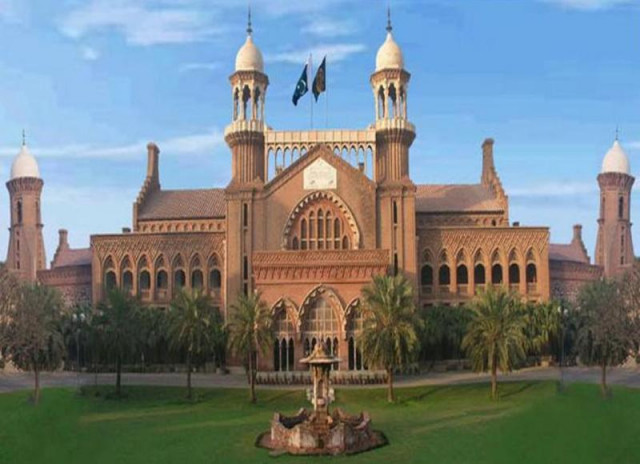LHC judge objects to SCJ’s composition
Argues one of the council members himself facing a case

PHOTO: EXPRESS / FILE
Hamid Khan, counsel for the LHC judge, on Wednesday contended before a five-judge larger bench of the Supreme Court – headed by Justice Azmat Saeed Sheikh – that if a judge is himself facing some inquiry, he should not sit to hear cases of his fellow judges.
He also objected to the SJC’s order in which his plea against a member of the council was rejected.
In October 2017, the SJC in its written order rejected the argument that since a complaint was pending inquiry against one member of the council, he was disqualified to sit and be a member of the council as per the provision of Clause 3 of the article.
Misconduct proceedings: LHC judge objects to being probed by ‘under-trial’ judge
“We are not persuaded to place such narrow interpretation on the said article as the spirit of the same is that no person should be a judge in his own cause and, therefore, is precluded from being part of the council, which is conducting inquiry into his conduct, etc.
“Thus, according to Article (3)(b), if he is the chief justice of a high court, the chief justice of another high court, who is next in seniority amongst the chief justices of the remaining high court shall act as member of the council in his place.
“This bar cannot be read into the article vis-a-vis all other proceedings under Article 209 of the Constitution in which the conduct, etc, of the said judge is not under scrutiny. Therefore, the plea has no basis and is accordingly rejected,” the SJC order had said.
Hamid Khan also supported the stance of the Islamabad High Court judge Shaukat Aziz Siddiqui for open hearing of his case before the SJC.
Female LHC judge challenges decision to not confirm her
Attorney General for Pakistan Ashtar Ausaf Ali, however, opposed open hearing of cases involving judges.
“The SJC is not a court, which gives judgments, therefore Article 10-A of the Constitution does not apply to judges’ matters,” said the AGP, adding that the SJC “conducts inquiry and not the trial” and “if it does not conduct a trial, how the principle of open hearing is applicable”.
“Generally, inquiry into any matter cannot be conducted in public,” he said.
However, another member of the bench, Justice Maqbool Baqar, observed that the SJC does not conduct an ordinary inquiry as it is done under special procedure. The bench questioned whether the procedure of conducting inquiry against judge is fair.
Supreme Judicial Council looks into LHC judge’s misconduct
However, Hamid Khan objected to the AGP’s arguments and said he is representative of the federal government which, in its written reply, has already supported open hearing of judges.
The AGP clarified that he is appearing on the court’s notice and the federal government is not an interested party in the case.
Later, the larger bench reserved judgment on the plea from both judges.


















COMMENTS
Comments are moderated and generally will be posted if they are on-topic and not abusive.
For more information, please see our Comments FAQ